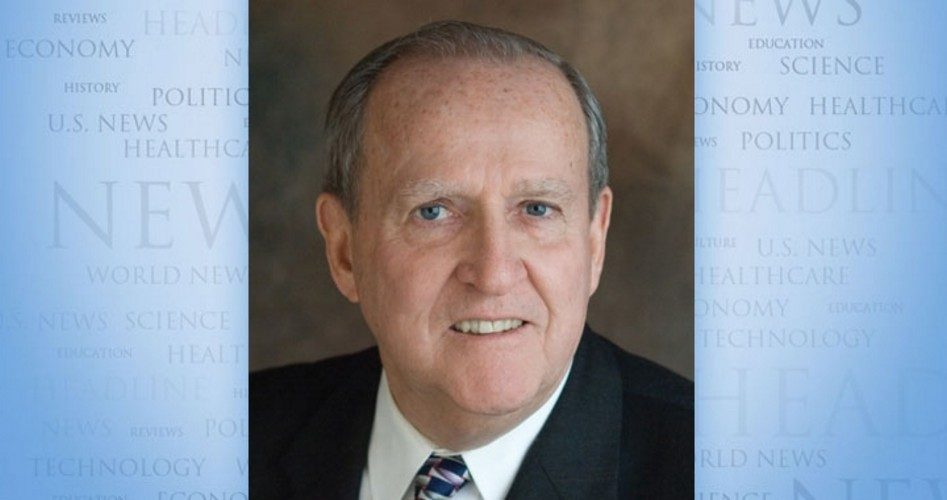
Five years have passed since a Colorado baker of cakes refused to create one of his masterpieces for two men who wanted it to celebrate their “marriage.” It’s hard to believe that this incident is now before the U.S. Supreme Court. But it is, and the fact that it has reached such heights indicates how far our nation has descended toward destruction of common sense and the commonly held values that formerly undergirded our nation.
Cake maker Jack Phillips says he has a right to refuse the business of a particular customer whose fundamental intention is not to purchase a decorated cake but to use the transaction to force acceptance of homosexual “marriage.” On religious grounds, he doesn’t approve of “gay marriage,” and his refusal to build a wedding cake for a homosexual duo supposedly violates a portion of the U.S. Constitution banning discrimination. I searched but I couldn’t find the particular part of the Constitution on which this case is built. Legal beagles claim it’s discrimination, and that’s something terribly bad. Half a century ago, discrimination was so highly regarded that the Herbert-Tareyton cigarette company advertised its product as “the cigarette for discriminating people.” And a common assessment of the esteem accorded discrimination back then insisted that the only people who don’t discriminate “are prostitutes and fools.”
Sadly, commonly held attitudes of 50 years ago have been pushed aside in the rush to overturn cultural, religious, and even economic mores. Some would claim this development to be “progress.” But that’s another word whose meaning has been turned upside down.
Shouldn’t Jack Phillips have a right to refuse the business of someone who walks into his store and intends, not so much to buy a cake, but to have the planned transaction force acceptance of something abhorred by Phillips and many others? Why does Phillips have to provide an approved reason for saying “No” to a potential customer he knows has an agenda that far exceeds buying a cake? Isn’t his business his property, even his “castle,” a place where his right to refuse doing business with someone sacrosanct?
A deeper look into this matter shows that the homosexual couple seeking a cake from Phillips planned to have it at their ceremony in New York, not in Colorado. They obviously chose to challenge the Lakewood, Colorado, baker’s distaste for gay marriage. So, the issue isn’t really one of mere refusal to do business with someone. It’s about forcing acceptance of homosexual marriage. By definition, marriage has always been the union of one man and one woman. Homosexual marriage is no more a marriage than labeling something water when it isn’t a combination of hydrogen and oxygen.
It’s no surprise to find a spokesman for the ACLU’s Lesbian, Gay, Bi-sexual and Transgender (LGBT) division taking the side of the supposedly aggrieved cake customers. James Essex of the ACLU claims: “You have freedom to believe and to preach your faith until your actions harm other people.” Does refusal to cooperate with the demands of homosexuals amount to harm? If so, what about possible harm done to a baker who refuses to participate, even in a slight way, in a practice he considers reprehensible, even sinful? Also, what about harming the moral character of this nation?
The Supreme Court will hear Masterpiece Cakeshop v. Colorado Civil Rights Commission in the fall. The case progressed from rulings at lower levels favoring the claims of the two men who insist that they are victims of unjust discrimination. Phillips’s attorney David Cortman rightly states, “Every American should be free to choose which art they will create and which art they won’t create without fear of being unjustly punished by the government.”
That makes sense, of course. But good sense doesn’t always prevail, especially when so much more than discrimination is at stake. The high court’s willingness to rule in this case about cake signals that there are far more important matters at stake.
John F. McManus is president emeritus of The John Birch Society. This column appeared originally at the insideJBS blog and is reprinted here with permission.


